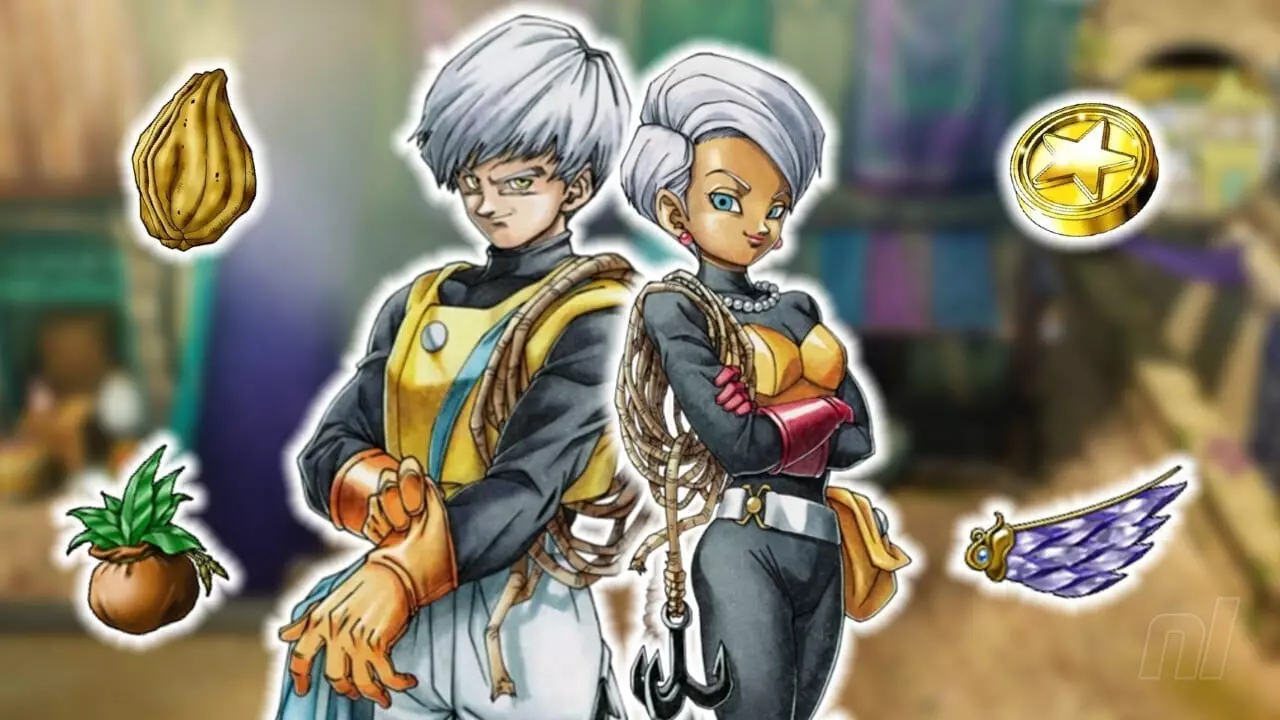Exploring a vibrant new town in a classic RPG often feels akin to stepping into a vivid painting. Each building, meticulously designed, invites curiosity. You might find yourself pausing in front of a charming cottage, with its picturesque oak door and vibrant slate roof that has weathered the passage of time. It’s easy to imagine who might live there—a kind-hearted villager, perhaps, who has just come home from a day at the market. But how often does the thought cross your mind: “Should I knock, or maybe just barge in?”
As strange as it sounds, the allure of intrusion often wins out in the realm of RPGs. Players routinely delve into the homes of virtual residents, rifling through drawers and cabinets with little regard for digital decorum. This peculiar aspect of gameplay reflects an interesting dynamic inherent in RPGs—the ability to play God, or at least a mischievous spirit, by taking what isn’t yours. While the real-world consequences of such actions would undoubtedly be severe, within the confines of these games, such thievery often comes without a hitch.
What makes this experience especially fascinating is how it intertwines with the broader themes of heroism and morality found in many RPG narratives. Players are often cast in the role of a celebrated hero, someone who saves villages from calamity and champions the cause of the oppressed. Yet, amidst these noble deeds, the act of pilfering items from hapless NPCs adds an ironic twist. Imagine vanquishing an ancient curse only to come home with the town’s silverware tucked away in your satchel. It seems at odds with the hero’s journey, doesn’t it?
This duality echoes back to the origins of role-playing games, such as Dungeons & Dragons. In these early frameworks, the ability to shape your character’s ethical stance became a playground for players to experiment with morality. Interestingly, Japanese RPGs often offer a more forgiving approach wherein players can loot without much consequence while their Western counterparts might impose penalties for immoral acts, fostering a sense of responsibility and accountability.
The dopamine rush that players experience from locating hidden treasures serves as a compelling aspect of the gameplay. Finding a hidden coin or item can feel exhilarating—an affirmation of your keen observation skills. Games like Dragon Quest III illustrate this delight perfectly, wherein a mere exploration of a town can yield unexpected treasures, from gold pieces to rare artifacts. The thrill is not just in stealing; it’s also about the satisfaction gained from being a savvy explorer.
RPGs thrive on this blend of reward and risk, enticing players to dig deeper and test boundaries, sometimes even sourcing their character’s skills specifically for the task at hand. This exploration feels rewarding, and it enhances the core experience of the game. As I navigated through Dragon Quest III, for instance, collecting loot became essential to my character’s growth—more than just a simple act of thheft, it served as a mechanic for enhancing my abilities and journey.
It’s intriguing how players steeped in the role of a heroic character resort to unconventional methods to boost their stats or empower their abilities. My own journey in Dragon Quest III was marked by an unlikely breakthrough—a ‘Tough Guy Tattoo’ gleaned from an unsuspecting inn. This tampering not only enhanced my character’s combat prowess but also blurred the lines of what constituted heroic behavior. The absurdity of acquiring power through dubious means becomes a fascinating reflection of gaming culture, inviting players to embrace a multitude of approaches.
Furthermore, newer titles like Octopath Traveler II and Fantasian Neo Dimension challenge traditional views on morality within RPGs. The former even allows stealing from children, which brings a whole new level of moral quandary to the table. Meanwhile, Fantasian openly acknowledges the absurdity of barging into homes by having NPCs offer occasional gratitude for your unwarranted benevolence. These developers deftly navigate the tightrope of morality and gameplay, keeping the fun intact while inviting self-reflection.
Time spent ransacking digital homes might evoke a guilty chuckle, but it ultimately serves a larger narrative—one about exploration, the allure of the unexpected, and the complexity of morality. In these immersive worlds, players find themselves grappling with ethical dilemmas while indulging in the thrill of the chase. Just remember, as entertaining as it is to loot virtual houses, the lesson remains clear: theft in our everyday lives is a different story—best reserved for the realm of fantasy, where it’s all fun and games. So, when it comes to stealing in RPGs, what camp do you belong to? The noble knight or the crafty rogue?

